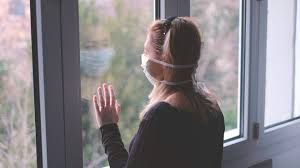Few would argue that the past couple of years, with lockdown after lockdown and fear of the unknown, have had an impact on our lives, our bodies and most definitely our minds. Worldwide we have all been through the same pandemic, but we have not all faced it from the same starting point. Whether it be our financial circumstances, family situations, physical or mental health, we have all handled the last two years in our own way.
The increase in cases related to mental health continues, and for many it is the ‘return to normal’ that they fear most. Some people feel that they have lost sight of what is ‘normal,’ or it has changed beyond all recognition, and they no longer feel comfortable with it.
So, what has really changed?
Table of Contents
For some, not much; for others their entire perspective on life is different – not always for the better, sadly. Perhaps we relished the time with family at home; maybe the work / life balance seemed more level than before; or did you discover a love for baking that you never knew you had? Some of the downsides were boredom, depression, weight gain and of course the inability to meet with loved ones. Changes in the way we communicate took a turn with the rapid rise of the zoom meeting. From schools to offices, and virtual school reunions, there was nowhere we couldn’t travel via the screen. We were forced to see ourselves on screen whether we liked it or not. We put ourselves under intense scrutiny and began to question how happy we were with how we look, and how others might see us. Our use of social media, in a bid to connect with the outside world, rose considerably. We became experts at getting the angle just right for a selfie, and we learned the importance of the filter for those days when were weren’t quite ready to face the day as ourselves.
So, when we are faced with the reality of putting ourselves back in the limelight, our lockdown bodies and minds might not feel up to the challenge.
What impact has it had on our self-image?
We have become more aware, and more critical of our appearance than before. As video calls and zoom meetings continued to rise, so did anxiety that related to our self-image. We have become more conscious of weight fluctuations and changes in lifestyle. Sustaining a rigorous, regular workout routine was difficult with the closure of gyms and sports centres. We relied upon our own dwindling motivation and that of the often overly upbeat workout guru to keep us moving. And with the best will in the world, with banana bread and a box set calling, this wasn’t the always the easiest path to choose.
It wasn’t just our bodies that got out of shape. The closure of hairdressers and beauty salons around the country put paid to any regular ‘maintenance’ of our physical appearance. With some questionable hairstyles as evidence, we improvised where we could. But there are some treatments that require a little more than a good pair of scissors and a drop of hair dye. Looking at ourselves in the mirror was one thing, but having your face plastered over an entire screen was, for some, a step too far. The necessity to continue to communicate meant a rise in video calls and meetings. We became adept at connecting in this way, but not everyone felt comfortable doing so. Working from home had its benefits, but the regular zoom meetings weren’t always a welcome addition.
What are we doing about it?
All this time to examine our faces and bodies has, inevitably, led to a surge in requests for cosmetic treatments. In particular, the less invasive treatments for the face have been very popular since lockdown eased. Old and new customers alike are booking their treatments months ahead, to ensure they can achieve and maintain the image they feel they should see looking back at them during those dreaded video chats. For some, they are using their new freedom to go for a complete body overhaul. Liposuction, breast augmentation and face lifts are also on the rise. The demand for cosmetic treatments to address our self-image issues is certainly keeping the clinics busy. Enhance Medical Group has noticed a surge in enquiries for all manner of treatments, both surgical and less invasive. They continue to provide outstanding results for their clients and many of them return time and again for additional procedures. This has been more noticeable since lockdown has eased, as people are taking the plunge and having multiple procedures in one sitting. They have had the time to contemplate the options and decide upon the best way forward. It makes sense for them to cover as many treatments as possible in the shortest, and of course safest, way possible.
Whatever works for you
So, why didn’t we choose to opt out of appearing in zoom calls and friendly video chats? It’s easy to turn off your camera and simply be present on a zoom call without the workforce judging your hair, clothes and unique style of home décor. But what does that say about you to everyone else? In a friendly setting you would be forgiven for hiding your overgrown lockdown locks, but if you job depends on regular face to face (via a screen) meetings then you might be concerned that your choice to be the blank, black box in the corner of the screen might damage your reputation. Turning off your camera for a work meeting can lead to trust issues from colleagues and may also appear rude or unprofessional. You don’t want to damage your integrity, but you also want to feel comfortable with the face looking back at you. Unsurprisingly, this requirement to be seen, and to see ourselves, has led to a type of ‘zoom dysmorphia.’ We might not always like what we see in the mirror (or in this case, on the screen), but what about when what we think we see is very much out of sync with the reality of how we look.
However, you may have chosen to address the issues brought on in the last two years, remember that your situation is unique. No-one has had exactly the same experience. So, however you have come out of this bizarre time, rest assured that there is no right or wrong in how you handle the transition back to ‘normal.’ If it works for you, it’s right for you, and that’s really all that matters.







